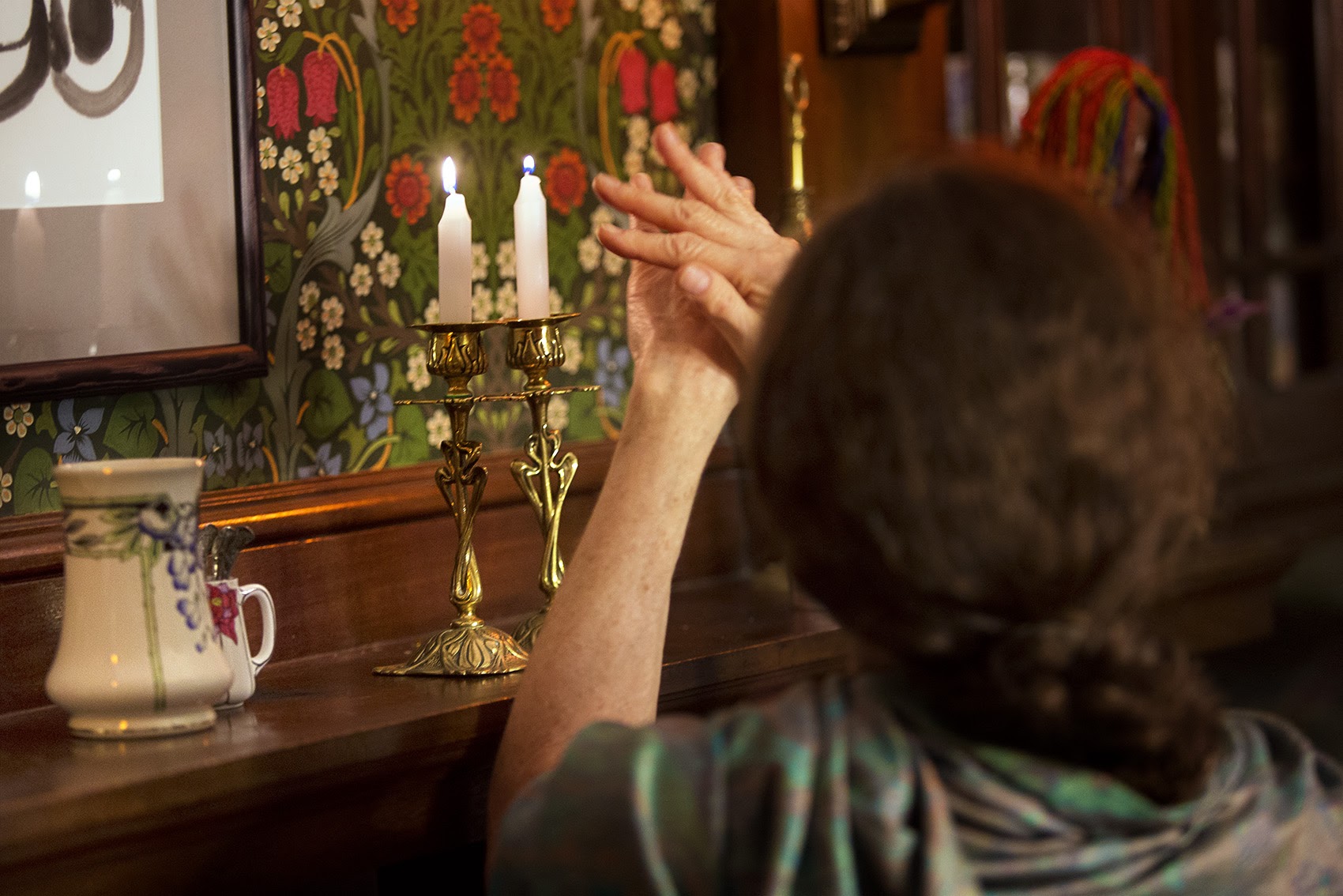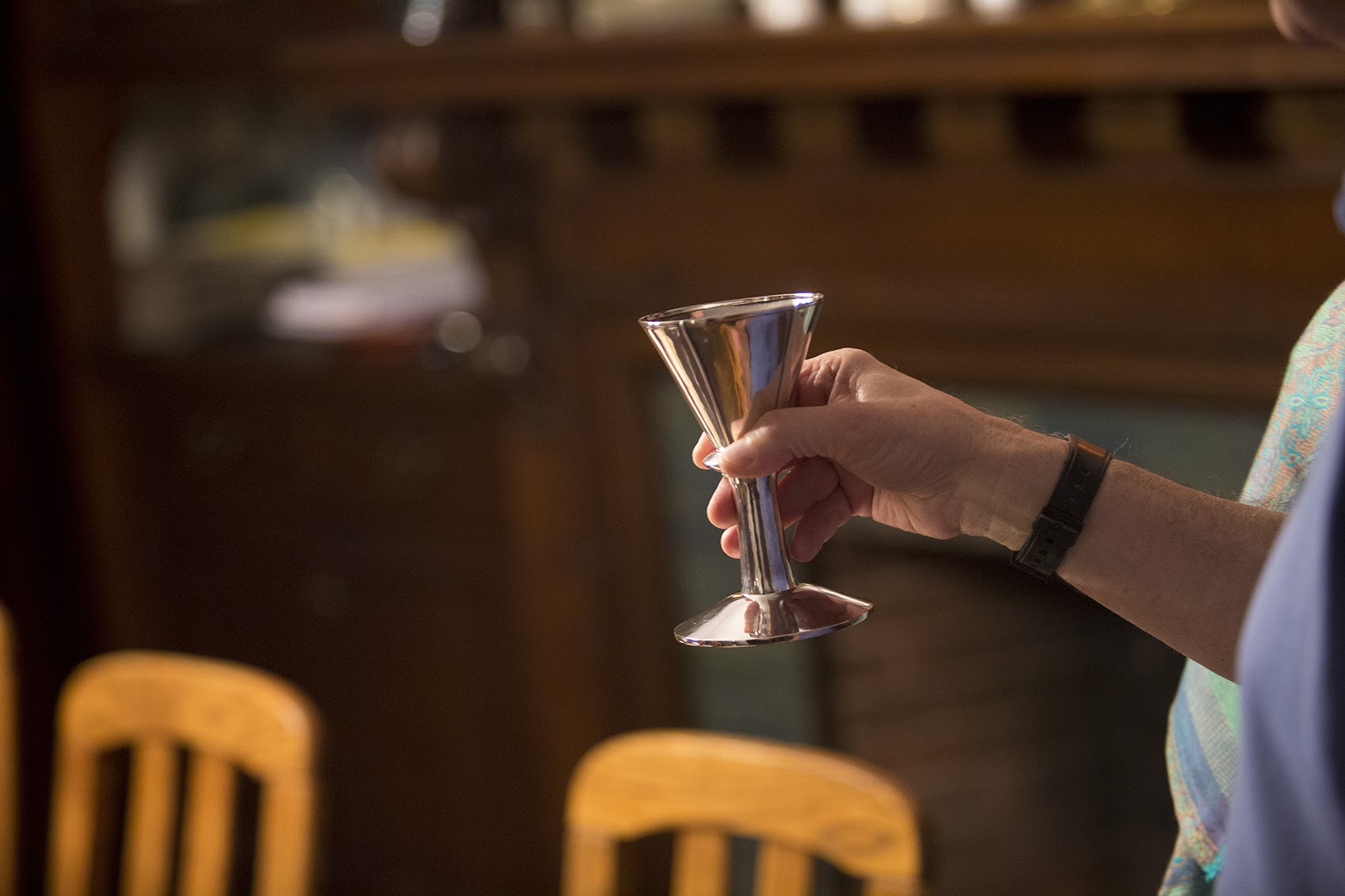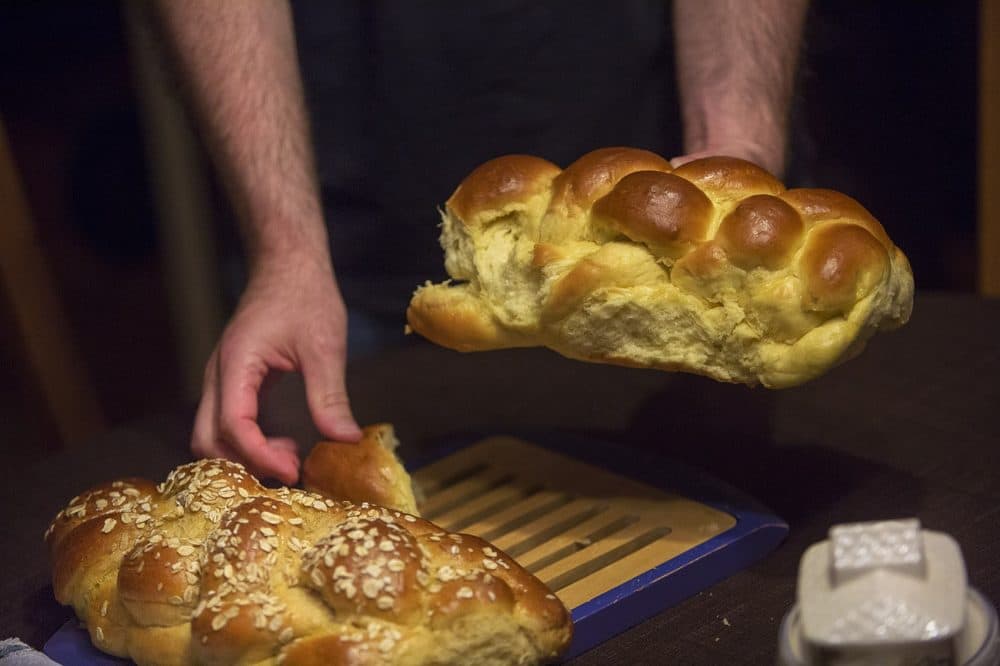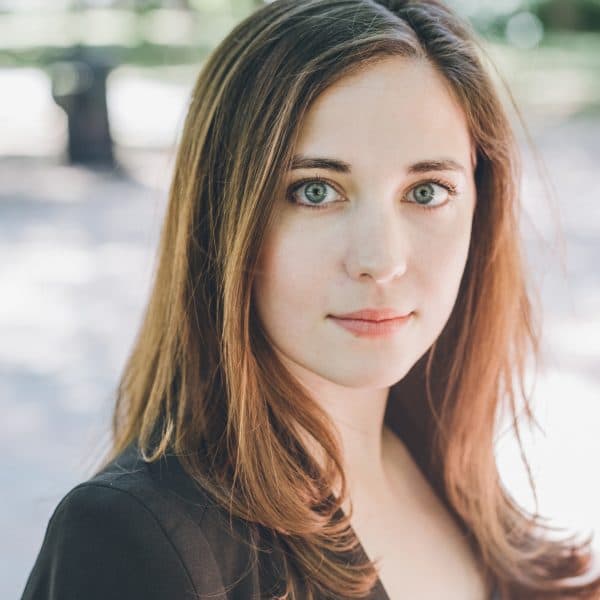Advertisement
Turning Point
Resume
If you had to decide whether to do something you thought was right, but it meant losing everything you loved, what would you do?
It’s one thing to answer that hypothetically, but for one man in his 20s, the question was very real.
He was born and raised in the Middle East in a war-torn country; we’re not going to share his name and some other identifying details for his and his family’s safety.
“People could not imagine to have a happy life when you live in a war zone, but when you are back home, you eat, you laugh, you joke, you dance, you have music,” he says. “Just a normal life and a happy life.”
But that happy life change abruptly when he encountered a potentially life-altering dilemma. Some people he knew told him about a center that was radicalizing young students — essentially recruiting them to become terrorists — which was against everything he believed in. He’d lost friends in terrorist attacks, and now he felt the urgent need to expose what the radicalization that was happening. He knew that doing so would put a target on his back.
“I knew that I may even lose my life,” he says. “It has been the most difficult decision of my life. I thought about it for hours and for days, actually.”
Finally, he realized he couldn’t live with himself if he didn’t act.
“I made a decision. I did something.”
So, he investigated the recruiting efforts, wrote about what he found and worked to get the center closed. For a while, things seemed all right, but then he found a death order targeting him on the terrorist group’s website. A few days later, he was outside when he looked behind him to see men running toward him with guns. He started weaving through the streets, trying to get away.
“So I was running, they were running, people were looking [and thinking] ‘What’s going on?’ My shoulder and body was waiting for a bullet; I was just feeling which part of my body would be hit.”
But he wasn’t hit. Somehow, he escaped into the crowd. He didn't think he'd be so lucky next time.
He started working to get a United States visa, and a few months later he was in the U.S. But the land of opportunity wasn’t so shiny up close. When he arrived, he had no work permit, no place to live, and a couple hundred dollars in his pocket that he stretched by eating one meal a day.
“I lost my family,” he says. Even now, he doesn’t like to think about it. “I had to leave everything behind. My language, my culture, my food, my childhood, everything that I was feeling was part of me. You did everything right, but what has happened to you is all wrong.”
He found a basement to sleep in, but, unemployed and alone, he wondered if he’d made a mistake.
“One day, I went and sat close to a river, and it was the most depressed day in my life. I was just thinking, should I continue life at that point, or not?”
Eventually he sought help at a refugee center, and a social worker there asked a volunteer, Susie, if she and her husband Rob would be willing to take a young man in. Could they give him a room for three months?
“I said yes,” Susie says, “and I didn’t mention it to my husband, and at a good time when he couldn’t react, I told him him that we were about to have somebody move in for a while.”
Rob was calm about it. “We’ve been married a long time, and I knew not to react until we knew more, so, I thought, well, let’s just wait and see,” he says.
They didn’t actually know anything about the person they were about to host, "and then suddenly I was told that it’s a young Muslim guy,” Susie says, “and we’re Jewish, so I didn’t really expect it to take off easily.”
But a couple weeks later, Susie picked up their house guest and took him straight to the grocery store. As soon as they walked in, she told him:
“‘Whatever you like, choose,’" her new guest remembers. “And that was the first feeling after months of desperate that somebody is taking me to grocery store and says, ‘Whatever you like, choose.’ I had that feeling of being appreciated and being loved, and it was a turning point in my life.”
The next day, Susie showed him the library and taught him how to ride the train. She and Rob bought him clothes, took him to the dentist and paid for English classes. But more than that, his relationship with Susie and Rob relationship was deepening.
“For several months, I had not had anybody to talk to and to genuinely trust that the person will just listen and will just have sympathy for me,” he says. “And then having a very kind and generous family around you that tells you that you are like their own child? I was just feeling that I have been given a life back.”
By then, the plan of a three-month stay was out the window. Susie and Rob were committed, and he started calling them “mom” and “dad.” The initial nervous chatter turned into long conversations at the kitchen table. Susie talked him through his emotional trauma, and they found they cared about a lot of the same things, like geopolitics, art and religion. He was frank about the antisemitism of his home country.

“The basic insult for somebody is to call them Jewish there,” he says. “‘Oh, you’re a Jew? You will eat a Muslim.’ And this is wrong. It’s shameful.”
They started comparing traditions and beliefs.
“And I found many similarities actually between Judaism and Islam,” he says. “I was fascinated by a Jewish community that I always thought that, well, they hate us, and I was fascinated to see the amount of kindness and love.”
They’ve become a sort of hybrid family.
“I sometimes say I am a Muslim-Jewish American.”
He looks forward to Shabbat dinner every Friday night and sets the table with almost child-like excitement, putting out yarmulkes and candles. He says the past three years with Susie and Rob have felt like three weeks.

“It’s a surprise when anybody drops out of the sky into your life, and to have that somebody be somebody that you so value is unexpected,” Susie says. “If everybody would open their house to somebody who needed a family, I think that we could solve a lot of problems in society, and I think it enriches people in ways that are very hard to imagine until you do it.”
Susie and Rob’s home is his home now, and they are his parents, he says.
“They have helped me in the most difficult time of my life. When they get older, I want to take care of them,” he says.
“The best gift that they gave to me was hope,” he adds.
These days, he’s taking college classes and has a job. He went from death threats, to losing his home, to losing his parents and siblings, to finding his way to the U.S., and finally, finding a family. Now he knows he has a future here — a future that’s safe and full of possibility.
Find Kind World on Facebook or Twitter, or email kindworld@wbur.org to share your story.
You can also subscribe to the podcast.
This segment aired on September 12, 2017.
